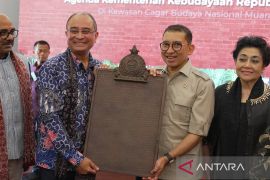"We will prioritize pro-poor and pro-job programs while simultaneously conducting direct fund transfers, which will benefit the people in the low-income group," Sofyan Djalil said.Jakarta (ANTARA News) - The Indonesian government will continue its pro-poor and pro-job programs to reduce the countrys inequality rate, National Development Planning Minister Sofyan Djalil stated.
"We will prioritize pro-poor and pro-job programs while simultaneously conducting direct fund transfers, which will benefit the people in the low-income group," Djalil, who is also head of the National Development Planning Agency, stated here on Wednesday.
Meanwhile, Deputy Finance Minister Mardiasmo remarked that village fund allocations can also be used to improve the living standards of the people.
The village fund allocations more than doubled to Rp47 trillion in 2016 from Rp20.7 trillion the year before and are expected to increase to Rp70 trillion or Rp80 trillion in the next year, he noted.
"If the village fund allocations are used optimally, they will help to narrow the gap and reduce the poverty and unemployment rates," he pointed out.
The Central Statistics Agency (BPS) has recorded a decline in the national inequality ratio by 0.01 points to 0.40 in September 2015 from 0.41 in March 2015.
The inequality ratio, known as the gini ratio, is an indicator to measure inequality or gap in the distribution of income in the community, and its value ranges between 0 and 1. This means, the higher the gini ratio, the higher the inequality in the community.
BPS Chairman Suryamin noted at a press briefing here, Monday, that among the factors affecting the improvement in the inequality ratio was the increase in the wages of farm and construction workers, which rose by 1.21 percent and 1.05 percent, respectively, during the March-September 2015 period.
Editor: Heru Purwanto
Copyright © ANTARA 2016











